What Causes Separation Anxiety in Dogs: Reasons, Safety Tips & FAQ (Vet Reviewed)

Updated on

Click to Skip Ahead
Separation anxiety in dogs is a common problem, leading to distress and unwanted behavior when left alone. This can include things such as excessive barking, destructive tendencies, and in worse cases, trying to escape. In this listicle, we will discuss ten causes of separation anxiety, how to identify them, and potential solutions.
The 10 Causes of Separation Anxiety
1. Inadequate Socialization
Insufficient socialization during the critical socialization period (3 to 14 weeks) can contribute to separation anxiety. During this period, puppies’ interactions with their mother and littermates help them to develop their social skills. Throughout their development, puppies need exposure to various people, animals, and environments to develop confidence. Inadequate socialization can lead to fear or aggression towards unfamiliar situations and excessive attachment to owners.
- Solutions: Gradually introduce new experiences, reward calm behavior, build confidence.
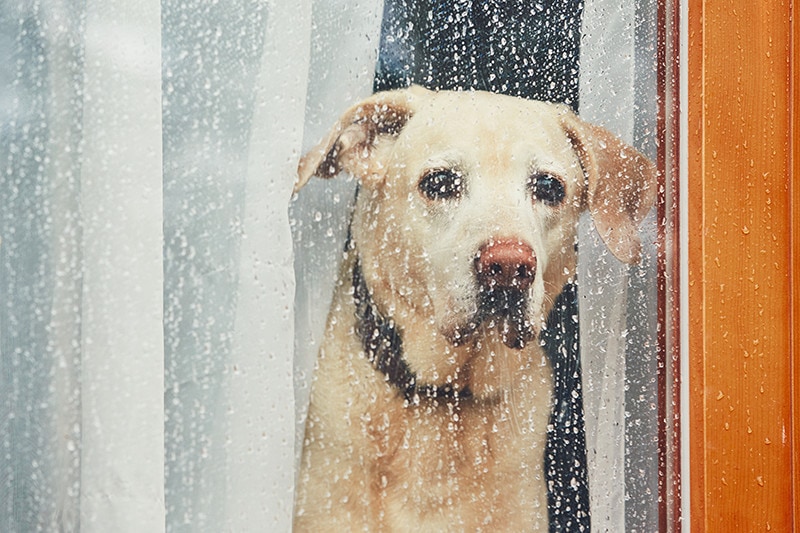
2. Change in Routine
Dogs thrive on routine and predictability. A sudden change can cause stress and separation anxiety, potentially leading to destructive behavior, excessive barking or howling, and house soiling. This is often the result of major life changes such as moving homes, new work schedules, or new family members.
- Solutions: Maintain consistency, gradually adjust schedules, provide positive reinforcement.
3. Traumatic Experiences
Past traumatic experiences can lead to separation anxiety, as dogs may associate being alone with negative events. Traumatic experiences can lead to excessive clinginess, panic attacks, and destructive behavior. Examples of traumatic experiences include accidents, abuse, and abandonment.
- Solutions: Work with a professional trainer or behaviorist, implement desensitization and counterconditioning programs.
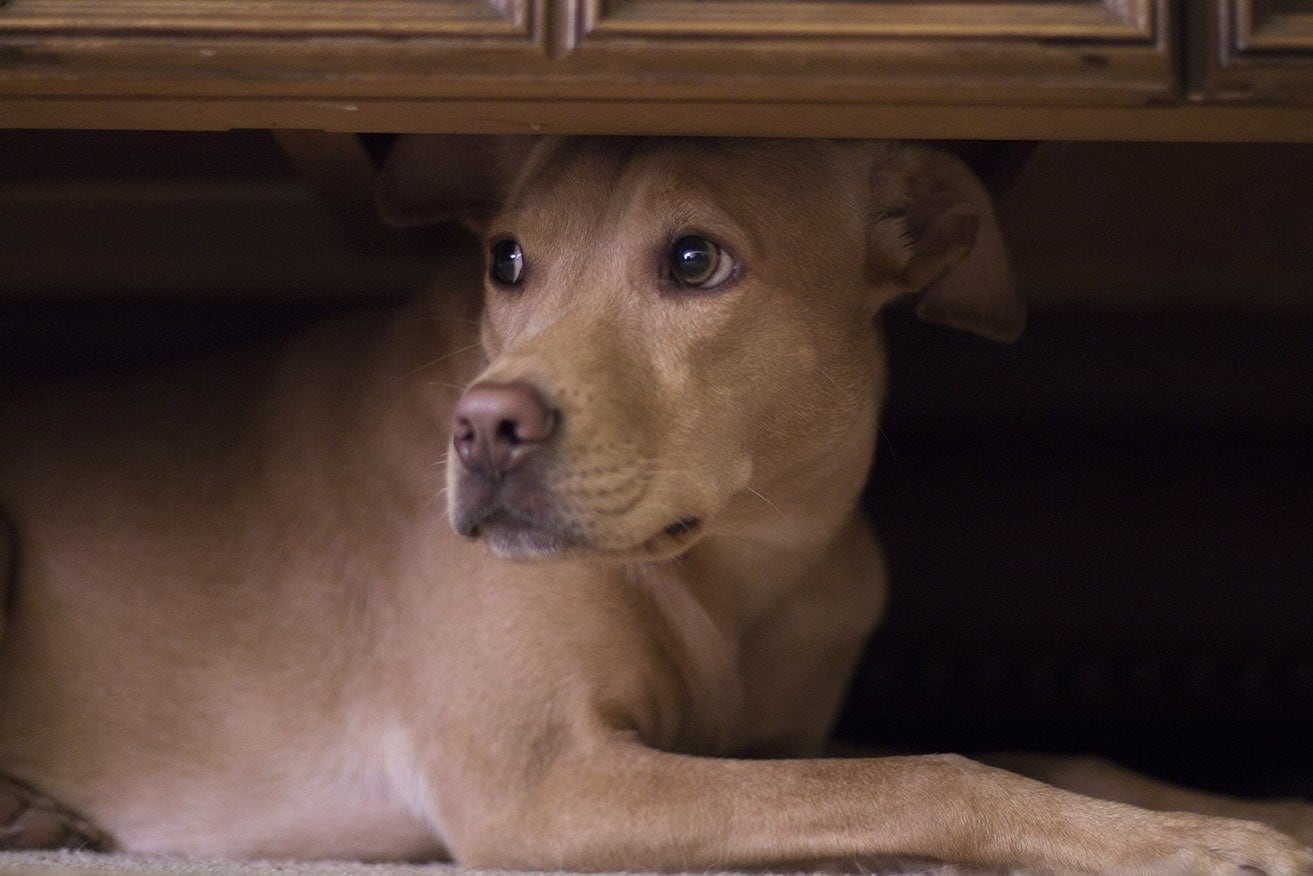
4. Genetic Predisposition
Some dog breeds may be more prone to separation anxiety due to their genetic makeup, displaying things like excessive barking, destructiveness, and escape attempts. This is common in breeds such as German Shepherds, Labrador Retrievers, Border Collies, and Shih Tzus.
- Solutions: Research breed traits and needs, provide proper training, socialization, and mental stimulation.
5. Lack of Exercise
Inadequate physical activity or insufficient daily exercise or mental stimulation can contribute to separation anxiety, as pent-up energy may lead to stress and destructive behavior. This can cause hyperactivity, restlessness, and destructiveness when left alone.
- Solutions: Provide regular exercise, engage in interactive play, offer puzzle toys or treat-dispensing toys.

6. Over-Attachment
Dogs that become overly attached to or overly dependent on their owners may struggle with separation anxiety. They may display a constant need for attention or visible distress when their owner leaves.
- Solutions: Encourage independence, establish boundaries, reward calm behavior.
7. Medical Issues
Underlying medical issues can cause or exacerbate separation anxiety in dogs. It’s usually a medical issue if there is a sudden onset of separation anxiety signs, especially if it is accompanied by other health-related signs such as pain, discomfort, or illness.
- Solutions: Consult a veterinarian, address medical issues, adjust care as needed.
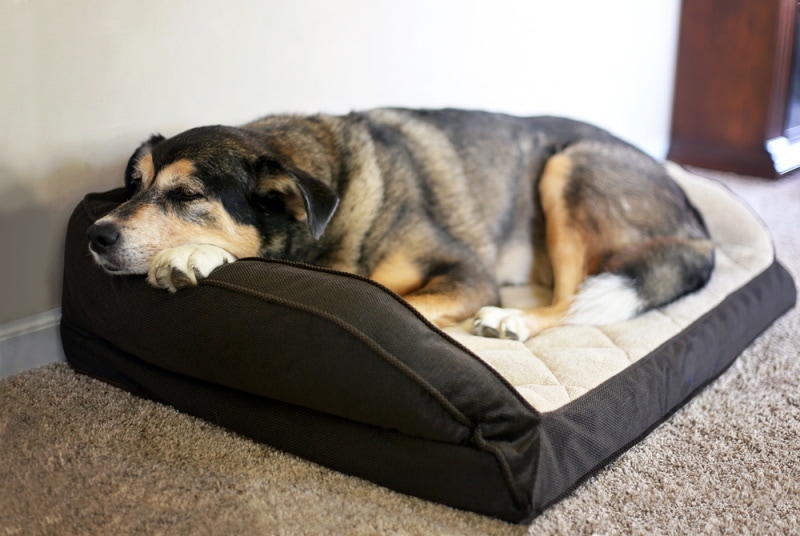
8. Aging and Cognitive Decline
Older dogs may develop separation anxiety due to cognitive decline or age-related changes. You may notice things such as confusion, disorientation, increased anxiety when separated from the owner. Like humans, dogs can also suffer from dementia and other changes in brain function.
- Solutions: Consult a veterinarian, provide mental stimulation, consider supplements or medication.
9. Lack of Proper Training
Dogs that have not been properly trained may struggle with separation anxiety, especially if your dog is showing disobedience or the inability to cope when left alone. This can be caused by inconsistent training or a lack of boundaries or structure.
- Solutions: Implement consistent training, establish routines, practice crate training.

10. Previous Shelter or Rescue Experience
Dogs adopted from shelters or rescues may have a history of separation anxiety due to past experiences, especially if they show fear, clinginess, destructive behavior when left alone. This can be caused by previous abandonment, multiple homes, or a lack of stability.
- Solutions: Provide a consistent and loving environment, practice patience, and work with a professional if needed.
 The 8 Safety Tips for Working With Separation Anxiety in Dogs
The 8 Safety Tips for Working With Separation Anxiety in Dogs
Separation anxiety in dogs can be challenging to manage, but with the right approach and safety measures, you can help your furry friend feel more comfortable when left alone. Here are some essential safety tips for working with separation anxiety in dogs:
1. Consult Your Veterinarian
Before implementing any training program or treatment plan, consult your veterinarian to rule out any underlying medical issues that may be contributing to your dog’s anxiety.
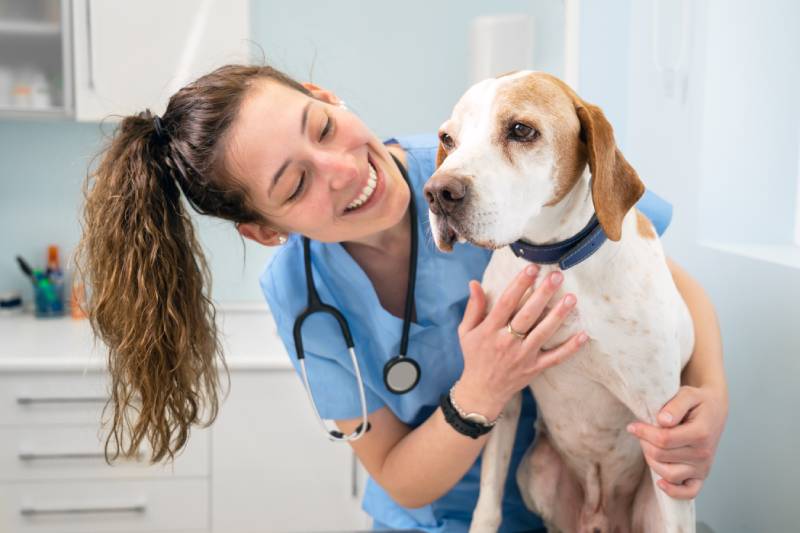
2. Ensure a Safe Environment
Make sure your dog’s environment is secure and free from hazards when you’re away. Remove any objects that could cause harm or be destroyed by your pet during an anxiety-driven episode.
3. Gradually Increase Separation Duration
Start by leaving your dog alone for short periods and gradually increase the duration as they adjust. This will help them become more comfortable with being alone without causing unnecessary stress.
4. Maintain a Consistent Routine
Consistency is crucial when managing separation anxiety. Stick to a regular routine when leaving and returning home, which can help your dog understand what to expect and feel more secure.
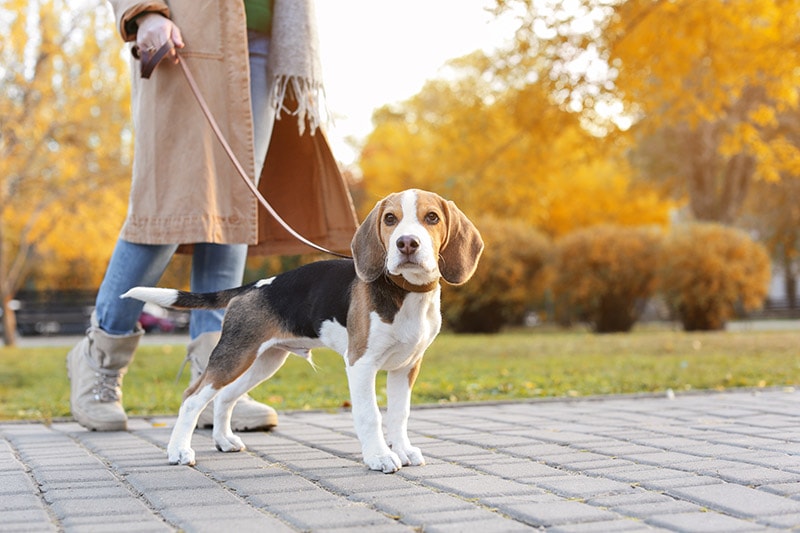
5. Remain Calm During Departures and Arrivals
Avoid making a big fuss or showing signs of distress when leaving or coming back home. Instead, keep your composure and maintain a low-key demeanor to prevent exacerbating your dog’s anxiety.
6. Offer Mental and Physical Stimulation
Providing plenty of enrichment activities, such as puzzle toys, interactive games, and regular exercise, can help keep your dog engaged and reduce anxiety during times when you’re away from home.
7. Utilize Positive Reinforcement Techniques
Encourage calm behavior during separations by using positive reinforcement methods, such as clicker training, treats, and praise. Reinforcing relaxed behavior can help your dog associate being alone with positive experiences.
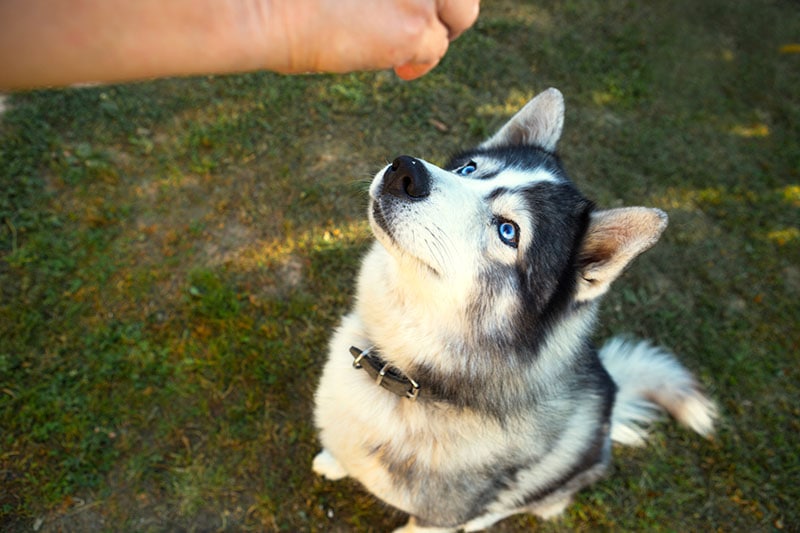
8. Seek Professional Assistance if Needed
If you’re having difficulty managing your pet’s separation anxiety or if their condition seems to be worsening, consider consulting an animal behaviorist or professional dog trainer. They can provide tailored guidance and support to help you and your pet overcome separation anxiety.
 FAQs About Separation Anxiety in Dogs
FAQs About Separation Anxiety in Dogs
Q: Can puppies experience separation anxiety?
A: Yes, puppies can experience separation anxiety, especially if they have not been properly socialized or are overly attached to their owners. Early intervention is crucial for preventing long-term issues.

Q: How long does it usually take to treat separation anxiety in dogs?
A: The duration of treatment varies depending on the severity of the anxiety, the underlying cause, and the consistency of the training program. Some dogs may show improvement within a few weeks, while others may take months or longer.
Q: Can medication help with my dog’s separation anxiety?
A: In some cases, medication may be prescribed by a veterinarian to help manage separation anxiety. Medications can help reduce anxiety levels, making it easier to implement behavior modification techniques.
Q: Is crate training useful for dogs with separation anxiety?
A: Crate training can be beneficial for some dogs, as it provides them with a safe and secure space. However, it is essential to introduce the crate gradually and positively, ensuring the dog does not associate it with negative experiences.
Q: Are there any specific breeds more prone to separation anxiety?
A: While any breed can develop separation anxiety, some breeds are more predisposed, such as German Shepherds, Labrador Retrievers, Border Collies, Vizslas, and Toy breeds.
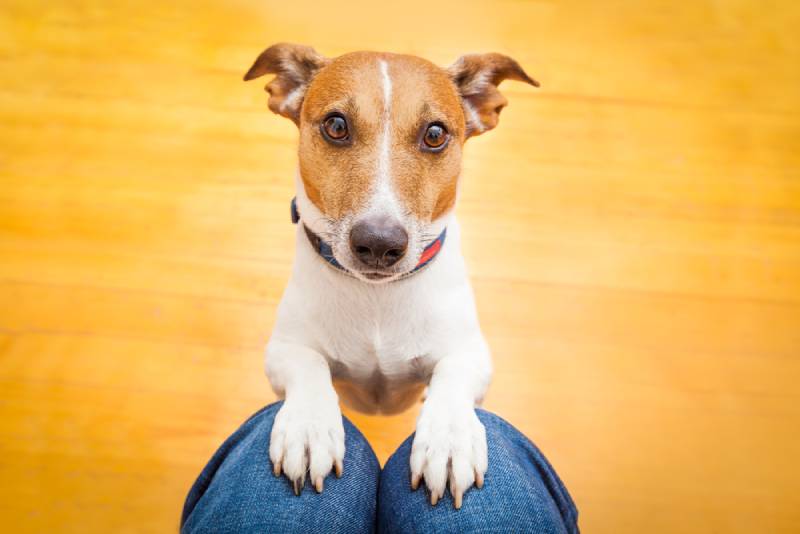
Q: What should I avoid doing when leaving my dog alone?
A: Avoid making a big fuss when leaving or returning home, as this can exacerbate separation anxiety. Instead, remain calm and low-key during departures and arrivals.
Q: Can dog daycare or a pet sitter help with separation anxiety?
A: Dog daycare or hiring a pet sitter can provide socialization and companionship, potentially reducing anxiety for some dogs. However, it is essential to ensure that the environment is suitable and that your dog is comfortable with the caregivers.
Q: Can spaying or neutering my dog help with separation anxiety?
A: Spaying or neutering can help reduce hormonal fluctuations that may contribute to anxiety in some dogs. Consult your veterinarian to discuss the benefits and risks of spaying or neutering your pet.
Q: Are there any natural remedies for separation anxiety in dogs?
A: Natural remedies, such as pheromone diffusers, calming collars, herbal supplements, or aromatherapy, may help alleviate mild separation anxiety. However, it is essential to consult your veterinarian before trying any new treatment.

 Conclusion
Conclusion
Understanding the causes of separation anxiety in dogs is essential for finding appropriate solutions. By addressing the underlying issues and providing a supportive environment, you can help your furry friend feel more secure and confident when left alone.
See Also:
- Do Dogs Miss Their Owners? What Does Science Say
- 12 Dog Breeds with High Separation Anxiety: A Brief Overview
Featured Image Credit: Seregraff, Shutterstock











